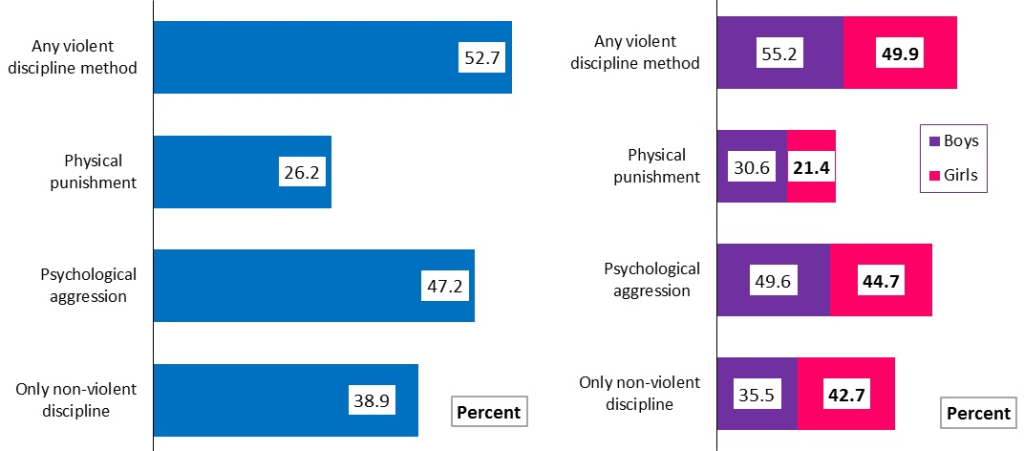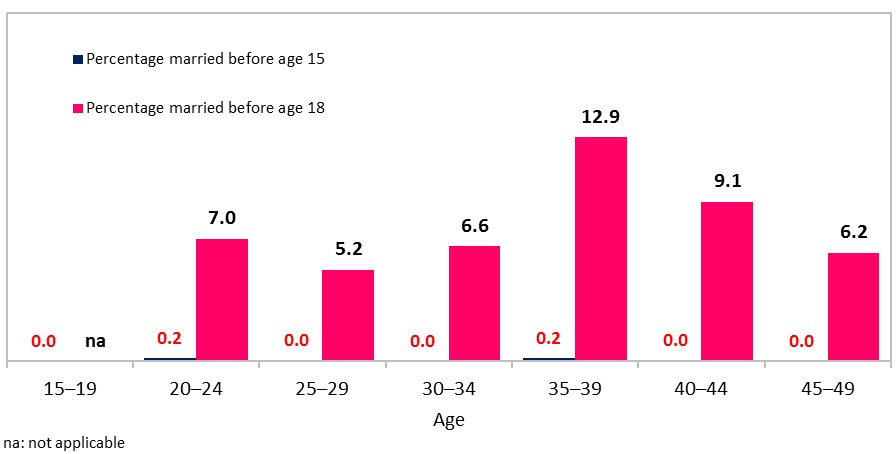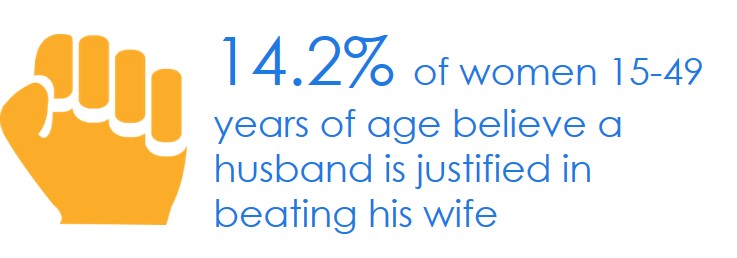Yet the births of around one in four children under the age of five worldwide have never been recorded. This lack of formal recognition by the State usually means that a child is unable to obtain a birth certificate. The birth certificate is a document certifying the identity of an individual, certifying the state registration of the fact of his/her birth. As a result, he or she may be denied health care or education.
The survey findings indicate that birth registration in Kazakhstan is almost universal (99.7 percent) with no differences by background characteristics.
Only 0.2 percent of children had no birth certificates, and this situation is mainly typical of children aged 0-5 months; most of them – newborns aged 0-1 months (7.7 percent) whose parents at the time of the survey have not yet managed to obtain the birth certificate, as according to the national legislation at the time, they had two months to register a child.
Violence hampers children’s development, learning abilities and school performance; it inhibits positive relationships, provokes low self-esteem, emotional distress and depression; and, at times, it leads to risk taking and self-harm.
In every culture, there are methods of teaching children self-control and acceptable behaviour in their environment – at home, in public places, etc. – which is an integral part of upbringing. Positive parenting practices involve providing guidance on how to handle emotions or conflicts in manners that encourage judgment and responsibility and preserve children's self-esteem, physical and psychological integrity and dignity.

In Kazakhstan, more than half (52.7 percent) of children aged 1-14 years were subjected to at least one form of psychological or physical punishment by the adult members of the household during the past month before the survey (55.2 percent of boys and 49.9 percent of girls have been subjected to any violent discipline method).
While 47.2 percent of children were subjected to psychological aggression, about 26.2 percent of children were exposed to physical punishment.
The most severe forms of physical punishment (hitting the child on the head, ears or face, or repetitive hits) are not common in the country: 1.0 percent of children was subjected to severe punishment.
Only non-violent discipline methods were used in respect of 42.7 percent of girls and 35.5 percent of boys. With respect to 42.7 percent of children living in the richest households, adults used only non-violent discipline methods, compared to 33.2 percent of children living in the poorest households.

In actual fact, child marriage is a violation of human rights, compromising the development of girls and often resulting in early pregnancy and social isolation, with little education and poor professional training reinforcing the gendered nature of poverty.
Marriage before the age of 18 is a reality for many young girls in the world. In many parts of the world parents encourage the marriage of their daughters while they are still children in hopes that the marriage will benefit them both financially and socially, while also relieving financial burdens on the family.
In Kazakhstan, the official marriage age for women and men is 18 years, and only in exceptional cases by the decision of the local executive bodies this age can be reduced by a period not exceeding two years for essential reasons: 1) pregnancy; 2) birth of a child.
Among women aged 15-49 years, 0.1 percent of girls were married before age 15, and among women aged 20-49 years, 7.8 percent were married before age 18. Among women aged 20-49 years, women living in rural areas are more likely to be married before age 18, compared to women in urban areas (9.5 percent and 6.5, respectively).
The prevalence of the proportion of women who were married or in union by age of 18 has fluctuated over time reaching its maximum some 20-25 years ago, after which it declined again.


Attitude towards domestic violence is assessed against a variety of life situations: 1) if she goes out without telling him; 2) if she neglects children; 3) if she argues with him; 4) if she refuses sex with him; 5) if she burns the food.
The 14.2 percent of women in Kazakhstan believe that a husband/partner may hit or beat his wife/partner in at least one of five situations.
Women who justify a husband’s violence, more frequently justify it in instances when: a woman neglects the children (10.8 percent) or goes out without telling her husband (4.1 percent), or argues with him (5.4 percent). Only a small proportion of women justify wife-beating if she refuses to have a sex with her husband (1.5 percent) or if she burns the food (0.7 percent).
Women aged 25-29 years (17.0 percent), those living in rural areas (20.6 percent), currently married/in union (17.7 percent), with a lower secondary education (23.7 percent), living in the poorest quintile of households (24.3 percent) more often than others justify the use of physical violence by the husband in any of the six situations.
The CRC recognizes that “the child, for the full and harmonious development of his or her personality, should grow up in a family environment, in an atmosphere of happiness, love and understanding”.
Understanding the children’s living arrangements, including the composition of the households where they live and the relationships with their primary caregivers, is the key to design targeted interventions aimed at promoting child’s care and wellbeing.
In Kazakhstan, approximately four out of five children (82.0 percent) aged 0-17 years live in a family with both parents, 13.1 percent – only with their mother, and 1.1 percent – only with their father. While, less than 1 percent of children aged 10-14 years are orphans.
9.2 percent of children live only with their mother, despite the fact that their own father is alive, and 0.8 percent of children live with their father despite the fact that their biological mother is alive. 3.2 percent of children do not live with their biological parents, while 2.6 percent of children have both parents alive. Nearly 5 percent of children have lost one or both parents.